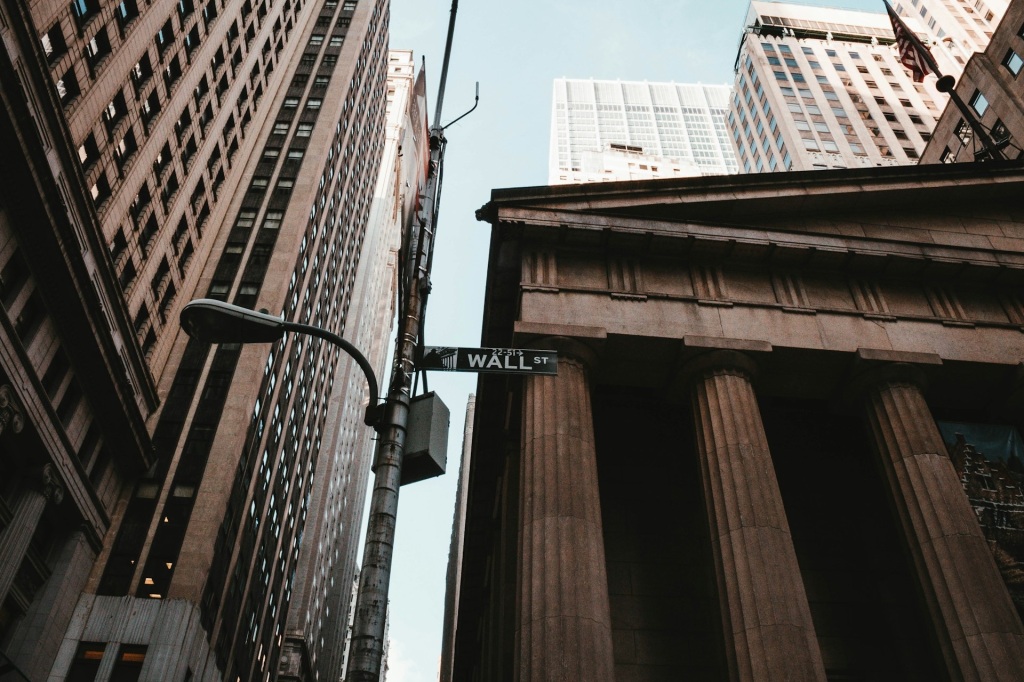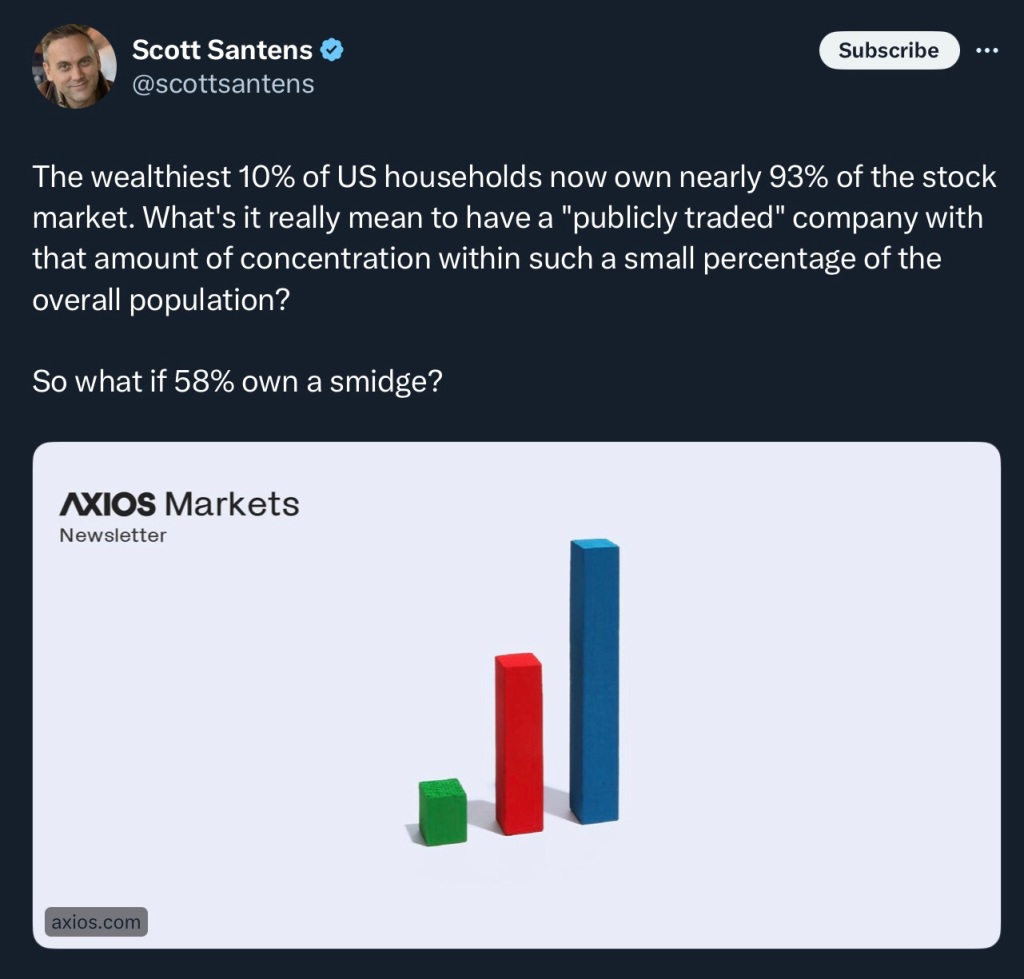

What is the stock market? A central marketplace to buy and sell stock. The NYSE dates back to 1792. It was likely never explicitly stated that it’s a private club. Because of the term publicly traded company, many people probably assume the public interest is being served or that the stock exchange is a public place. It is not.
10% of the populated owns nearly 93% of the stock market. As the late, great George Carlin used to say “it’s a big club, and you ain’t in it”.

10% of the population…wow, and the government gave them how much bailout money in 2008?
I wonder how the public could have benefited from that money? Healthcare, pot hole repair, college debt forgiveness, homeless sheltering, food banks, community gardens, jobs programs, etc. But that’s going into fantasy land. A fantasy where the rich don’t get richer.
Is there a middle ground where the poor don’t have to get poorer?
It is something to see so much data and evidence pile up that America is living in a capitalist controlled oligarchy. The illusion of direct democracy fades for all but the heavily propagandized. Unfortunately the heavily propagandized is still the majority of the civilian population of America.
The evidence of that fact shows up every election season. Red vs blue, republicans vs democrats, neighbor vs neighbor. Tribalism weaponized to keep the unwashed masses fighting amongst themselves rather than looking upwards and their oppressors.
That third parties are still relegated to joke status because the duopoly has people convinced lock, stock, and barrel that they need to vote between the lesser of two evils OR ELSE, is also really something to behold every election season.
How many billions need to be spent on war and corporate welfare each year before something changes? Is there a number? Is there a flash point? Is there a turning point? Do we as a people have it in us?
It is easier to just get by. Take less and be lead. Settle on the sidelines and complain through small talk or comment sections.
However, it is also getting harder to deny reality. Even in a time of compounding misinformation and infinite propaganda, a study that shows that 10% own 93% of the stock market comes out. The same stock market that is used by every mainstream news source as the indicator of whether the economy is doing good or bad for the whole country.
So if 10% are doing good we’re all doing good? No. But every news anchor and every politician in America talks about how good or bad the economy is doing based on how the stock market is doing. So what does it mean if the stock market is doing good, 10% of the population are doing good, the media and politicians all in unison say we are doing good as a whole, but the vast majority are experiencing the toughest times of the past century?


